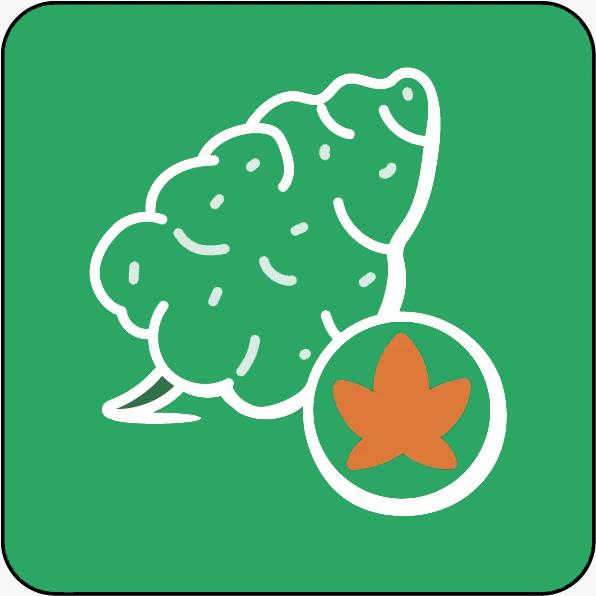Cannabis and Artificial Intelligence: How AI is Revolutionizing Cannabis Research and Applications

The combination of cannabis and artificial intelligence (AI) represents a turning point for the future of medicine, technology, and public health. AI is already profoundly impacting scientific research , understanding the effects of cannabis , and developing targeted therapeutic applications. This blog explores how AI is transforming every aspect of cannabis, from identifying new compounds to improving treatment safety and efficacy.
What is marijuana and why does AI matter?
Cannabis is a complex plant with more than 100 active chemical compounds known as cannabinoids , including tetrahydrocannabinol (THC) and cannabidiol (CBD). This complexity makes cannabis an ideal candidate for AI analysis.
The Chemical Complexity of Cannabis
AI’s ability to analyze massive datasets allows us to study how cannabinoids interact with the human body, focusing on specific receptors and predicting the effects of cannabis at the molecular level. The goal is to create detailed chemical profiles that improve our understanding of THC, CBD, and other active molecules in Cannabis sativa .
Why is AI crucial in cannabis research?
By identifying hidden patterns and correlations, AI is helping researchers understand the effects of cannabis in general , identify lesser-known side effects , and optimize its therapeutic use. AI can also accelerate discoveries that would otherwise take years of traditional study.
How AI Improves Understanding of the Effects of Cannabis on Mental Health?
The effects of cannabis on mental health vary greatly from person to person. AI is providing new insights into understanding and predicting these effects more accurately and investigating the neurological potential that marijuana may have.
AI and Cognitive Risk Prediction
Machine learning tools are being used to analyze data from thousands of users, identifying risk factors for cognitive disorders related to cannabis use . For example, AI can identify subjects predisposed to conditions such as loss of contact with reality or anxiety disorders, evaluating variables such as genetics, dosage and frequency of use.
Optimization of therapeutic applications
AI isn’t just identifying risks: it’s also being used to personalize cannabis-based medication treatments, combining the benefits of CBD with low doses of THC to reduce side effects and improve mental health.
How can artificial intelligence monitor the effects of cannabis use?

Cannabis smoking is a controversial topic, linked to potential side effects on the respiratory and cardiovascular systems. AI offers innovative solutions to monitor and manage these effects.
AI-Powered Respiratory Health Analysis
AI-powered devices can analyze the breath of cannabis smokers , assessing the risk of lung damage and predicting the onset of chronic diseases. These systems can distinguish between the effects of cigarette smoke and cannabis, highlighting differences in the consequences on the respiratory system.
Cardiovascular risk assessment for cannabis smoking
AI is also being used to study the cardiovascular effects of cannabis, such as increased blood pressure or heart rate. Such analyses are critical to determining whether cannabis use is safe for individuals with pre-existing conditions.
How AI Identifies New Therapeutic Uses for Cannabis?
Research into the therapeutic effects of cannabis is accelerating thanks to AI, which is allowing the exploration of new pharmacological possibilities.
Discovery of new cannabinoid compounds and substances contained in cannabis
Using machine learning, AI can analyze cannabis flowers to identify lesser-known compounds with potential medical applications. This technology has already led to the discovery of cannabinoids with anti-inflammatory and neuroprotective properties, expanding the range of medical applications.
Personalization of treatments
With AI, doctors can use a patient’s genetic and clinical data to create personalized treatment. For example, patients with multiple sclerosis or chronic pain can receive optimal dosages of THC and CBD, minimizing side effects .
Can AI Prevent Cannabis Addiction?

Cannabis addiction is a growing concern, but AI is providing tools to monitor and prevent it.
Prevention through data monitoring
AI can analyze usage patterns to identify early signs of substance addiction , such as a steady increase in dose or regular use that interferes with daily activities.
AI-based support tools
AI-powered applications, such as chatbots and virtual assistants, can provide support for those who want to reduce their cannabis use , offering personalized advice and tracking progress over time.
How AI is Transforming the Legal Cannabis Market?
The legalization of cannabis has led to an explosion in the global market, and AI is playing a crucial role in managing and optimizing this industry.
AI-optimized cultivation
In the agricultural sector, AI is used to monitor and optimize the growth of cannabis plants. Smart sensors and predictive algorithms help improve bud yields and ensure consistent quality.
Market and consumer analysis
AI tools analyze consumer behavior and market trends, providing companies with valuable insights to develop new products and sales strategies. This data-driven approach helps make the cannabis industry more competitive and sustainable.
How does AI help distinguish between therapeutic and recreational use?
Cannabis use can be either therapeutic or recreational, and AI is becoming a key tool in drawing this distinction.
Clinical data analysis
AI is able to analyze the results of a published study to identify the contexts in which cannabis is used for therapeutic purposes versus recreational ones. This helps to define more precise medical guidelines and reduce the negative effects related to improper consumption.
Personal Consumption Tracking
AI-powered applications can track an individual’s cannabis use , providing detailed reports that distinguish between medical and recreational use, promoting responsible consumption.
Is Cannabis Really a Gateway Drug? What Does AI Say?
The debate over whether cannabis is a gateway drug is heated, but AI is offering new, data-driven insights.
Study of correlations with other substances
Using AI, researchers can analyze large datasets to see if cannabis smokers are more likely to switch to other substances than non-users. So far, the data suggests that social and psychological context may play a more significant role than just cannabis use.
Personalized prevention
AI tools can identify individuals at risk of developing substance abuse and provide targeted preventative interventions, debunking the idea that cannabis is an inevitable “gateway drug.”
Conclusion: An AI-Driven Future

Artificial intelligence is transforming every aspect of the cannabis world, from medical research to market regulation. With AI’s ability to analyze multiple studies based on complex data and personalize therapeutic approaches, we can expect a future where cannabis will be used more safely, effectively, and





















